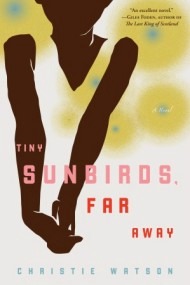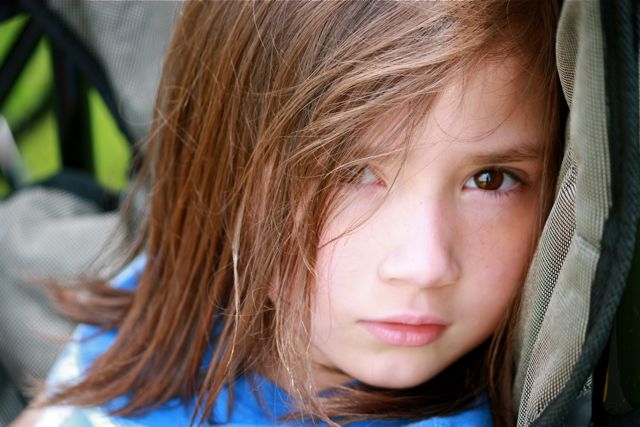 At first I had not understood Mama. But as I grew older, maybe not wiser, certainly more realistic, I realized she did the best she could. She loved me, in her own way. Not everyone is born to be a mother. It does not come naturally to some women. They are the ones that Allah should have made into men.
At first I had not understood Mama. But as I grew older, maybe not wiser, certainly more realistic, I realized she did the best she could. She loved me, in her own way. Not everyone is born to be a mother. It does not come naturally to some women. They are the ones that Allah should have made into men.
Having spent over 400 pages getting to know Blessing, and sympathizing with the sense of want and loss she experiences as her father leaves, as her brother grows distant, and as her mother pulls away from her touch, these words wrecked me.
Tiny Sunbirds, Far Away is the tremendously written story of Blessing’s coming of age amidst violence and poverty in Nigeria. I devoured Blessing’s recounting of surviving her father’s alcoholism and infidelity, the description of her village school, the portrayals of primitive childbirthing. I laughed when Dan, the “white man,” entered the story; his endearing social ineptness so similar to my own dad.
I grew tense when Blessing’s brother began to wheeze with asthma, recognizing the feeling of helplessness and panic that comes when someone you love cannot draw breath. I was haunted by echoes of my mother’s fear when Blessing spoke of the Kill and Go, boys from their own land who slaughtered their own people.
So much of this story reminded me of vignettes from my mother’s stories of her life in Vietnam, and moments from my own experience as a 12-year-old. But every so often Blessing would say something as an aside that would hit so close, suddenly twist a knife in my heart, a knife that is there always but I have grown used to over time.
She stood up and walked toward the mesh window. For a moment I wondered if Mama was about to say ‘I love you.’ I held my breath. I had never heard those words before and wanted to hear the exact way she said them…
Mama did not say I love you. She turned away from the window and looked through me, past me. “I hate this fucking place,” she said. And a large tear dropped onto her cheek.
It is a truly humbling experience to realize that your parents… are people. Who come with their own baggage, their own emotional complexities, their own histories and pain and wants and needs. A tremendous shift occurs in your own relationship to your past when you move past the ego-centric memories of a child. You realize your parents’ actions and words weren’t always about you.
Their story, and your role within it, becomes richer.
I relive those awkward pauses where I too held my breath, thinking one of my parents was about to tell me they loved me. Those seconds stretched seemingly into eternity, broken finally by a sigh or a question about dinner.
I wonder now if those pauses were moments where my parents wanted to say that I was loved, but their own pasts rendered them incapable of doing so. Whether their own infamiliarity with the words made it impossible for the sentiment to pass their lips.
I wish I could go back and rush to fill those spaces myself. I love you, I love you, I love you.
“Do you forgive Mama?” Eniye asks questions we only think about. She is our hearts exposed and beating in front of our faces…
“There is nothing to forgive. We are all a mixture of right and wrong.”
…I always want her to know she is loved. But I will make my own mistakes, I know. I can only hope that she will forgive me for those; forgiveness is all a parent can hope for.
I was so afraid, when I first became pregnant, that I would not be a good mother. That it would not come naturally to me.
I don’t tell my kids, or my husband and brother for that matter, that I love them anywhere near often enough. The words feel awkward and ugly on my tongue. I hope that they know, but I understand the words themselves are important. The memories.
…the best stories are told. And the very best stories are told to a daughter. Saying them out loud keeps people alive.
…When looking at her I imagine my childhood and I live it all over again. Having children is getting to live two lives.
I tell my kids my stories, and my parents’ stories. I tell them even though they pain me, the memories both good and bad.
I feel, sometimes, like they miss out on a lot not having my parents here. Part of the reason it took so long for me to gain perspective is because I didn’t have the benefit of grandparents telling me what my mom, my dad were like as children. All of those little chapters that build a character. I didn’t understand them at all.
With my parents gone, my children lack that perspective as well. So I am mindful. I tell their stories, and my stories, and when Cass asks, “Why did she do that?” I try to answer from a place of honesty and truth as best I can, and not from a place of a lonely and hurt childhood.
I get to relive my childhood again. I get to reframe it in my own memory. I work to understand and appreciate my culture and history.
I grow sympathetic, and stronger. I do it for my children.
I believe this is what they call growing up.
___________________________________________
This post was inspired by my reading of Tiny Sunbirds, Far Away, a debut novel by Christie Watson that you really need to go read. I received a free copy to read as a participant of From Left to Write, an online book club. Check in there tomorrow as other bloggers share their stories inspired by the novel.
___________________________________________






